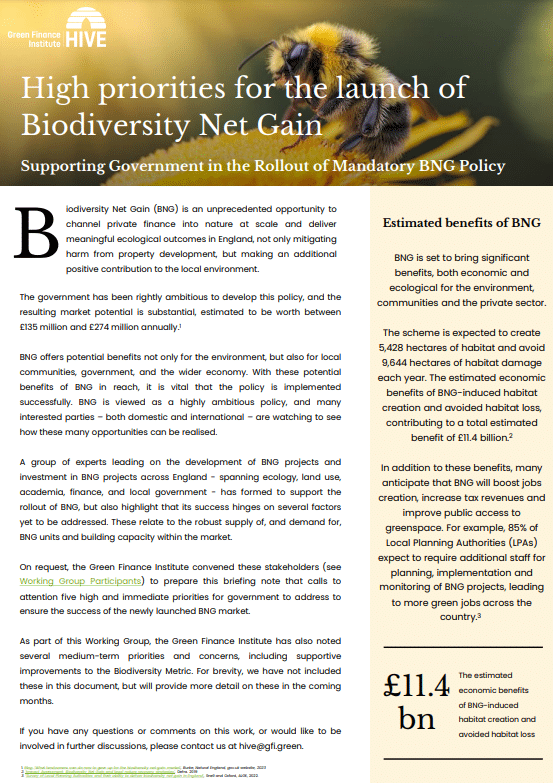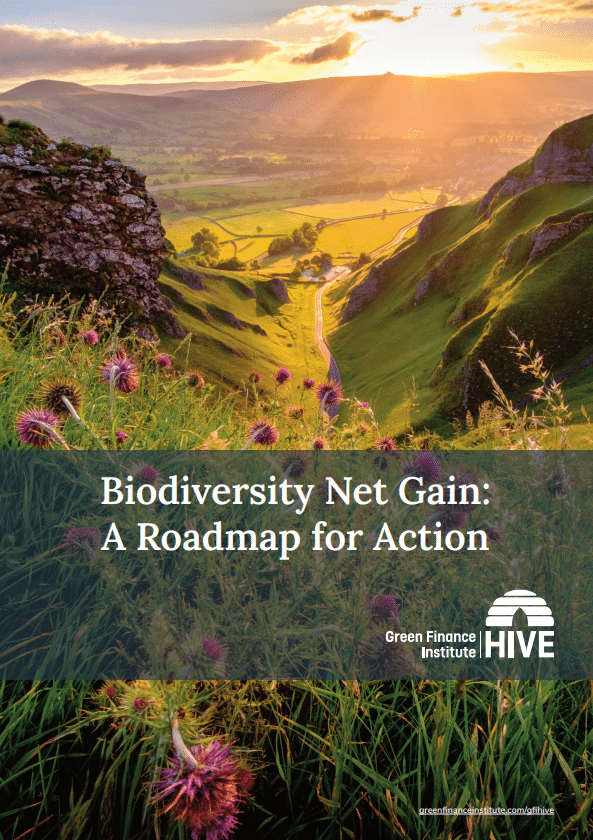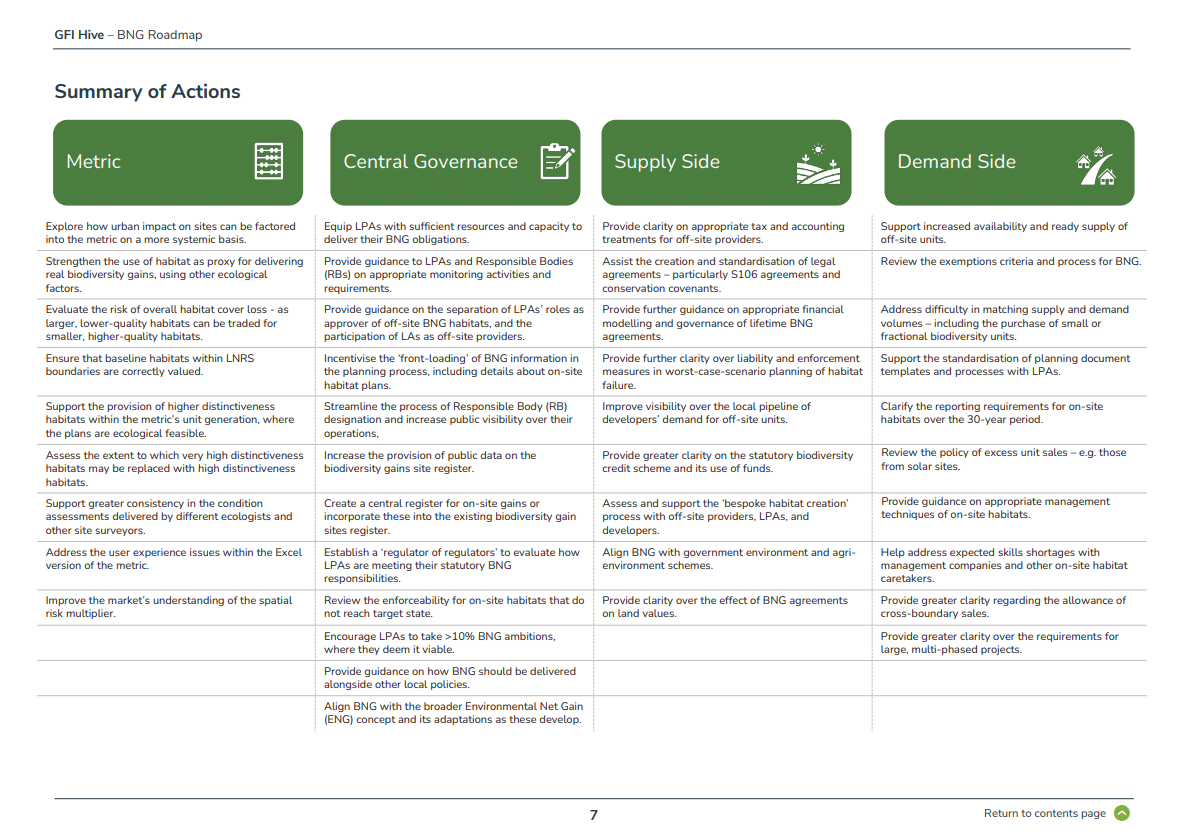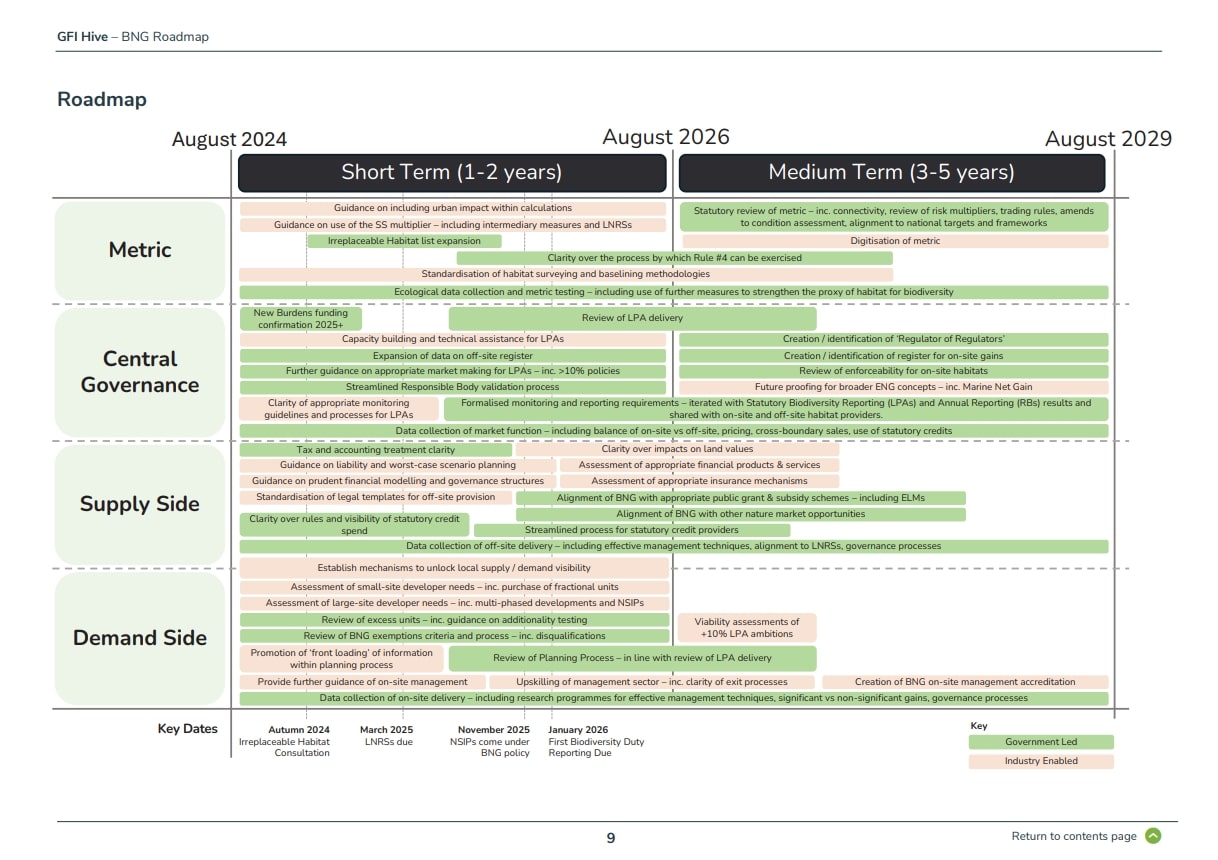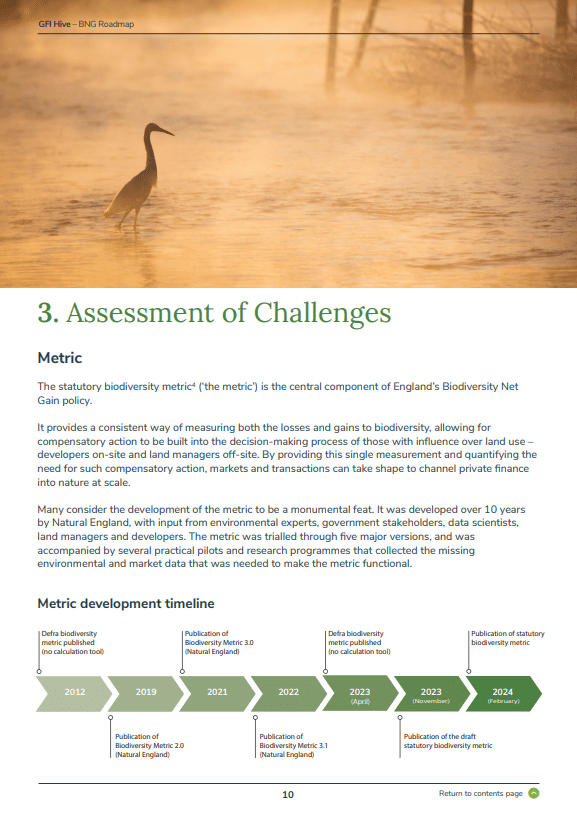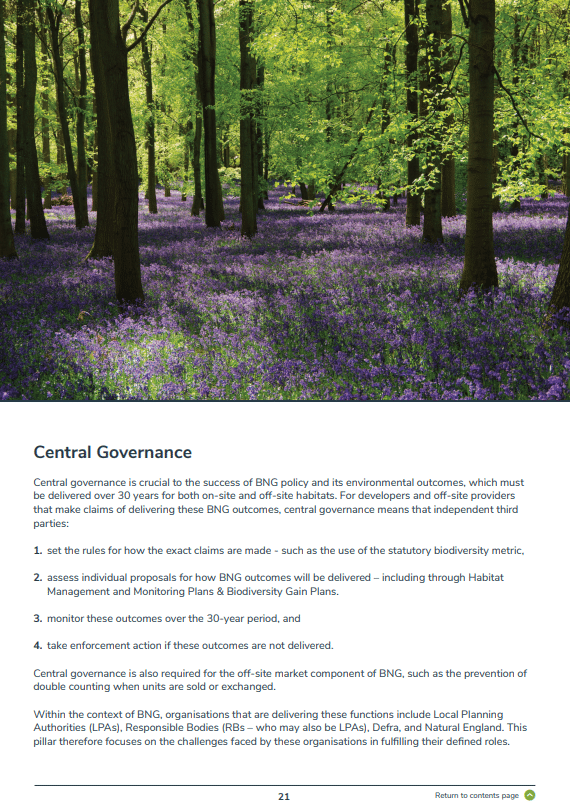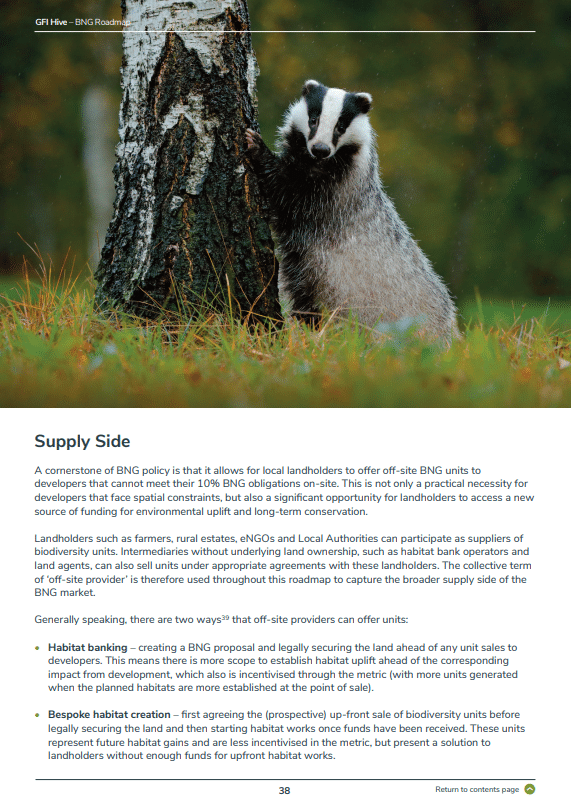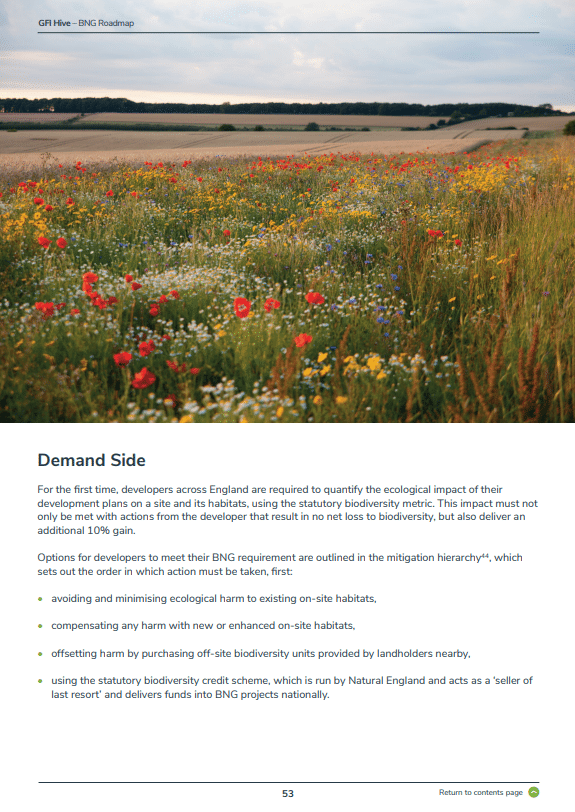Biodiversity Net Gain Working Group
The introduction of Biodiversity Net Gain (BNG) marks a seminal shift in how nature is factored into local planning and development. By ensuring that developers contribute positively to biodiversity, BNG can transform the way the natural environment is perceived from a passive responsibility to an active investment. BNG has the potential to be a powerful tool in fostering sustainable development and reversing the historic loss of nature that has left England one of the most nature depleted countries in the world.
Since the launch of mandatory BNG from 12 February 2024, a number of challenges have surfaced that are preventing BNG from reaching its full potential.
In February this year, GFI Hive began convening a Working Group to outline the challenges and identify actions for success. Over 100 stakeholders were convened or engaged – from the land management, property development, environmental NGO, local government, ecology, academia, legal, consultancy, technology, insurance and finance sectors. We have also connected with existing groups and communities of interest, such as those led by the Future Homes Hub, the Planning Advisory Service, and the government’s own Market Advisory Group.
This led to the development of an initial document and a more detailed Roadmap for Action. As part of the Roadmap, we have assessed the current state of the BNG market through four major pillars of BNG policy’s design:

Outputs of the GFI Hive
Initial Briefing Note: High priorities for the launch of Biodiversity Net Gain
Date published: 12 February 2024
On 12 February 2024, the date that mandatory BNG came into force for major developers, the GFI Hive published an initial briefing note that outlined the top five priorities for government to focus on in its implementation.
This note was created over two months with the input of around 40 market stakeholders – spanning ecology, land use, academia, finance, and local government – which formed the early Working Group of the GFI Hive’s BNG programme.
The top five priorities identified were:
A level playing field between on-site and off-site BNG provision
Greater resourcing for Local Authorities
Clarity over tax and accounting treatment of BNG agreements
Stronger governance over the monitoring and maintenance of BNG
Clarity over the use of S106 agreements and conservation covenants
The initial briefing note can be accessed here.
Biodiversity Net Gain: A Roadmap for Action
Date published: 01 August 2024
Following our initial briefing note published in February, we engaged with more than 100 different stakeholders to develop a more detailed Roadmap. It identifies 40 challenges across the four pillars of BNG, articulating these in further detail, offering potential solutions for central government to consider and – for a select number of challenges – case studies to show where market actors have experienced these and are working through potential solutions.
This challenge-first approach has been taken to ensure that the major challenges within the BNG space are captured and clearly articulated in a central document. While the Roadmap offers potential solutions that have been proposed within workshops and discussions, it is important to emphasise that as the BNG space is still nascent, many solutions are yet to be fully developed. We therefore hope this Roadmap will serve as a useful basis for those undertaking such work.
A full list of those involved in the Working Group and contributors can be found in the full Roadmap.
Full Roadmap
If you have any questions or comments on the Roadmap, or would like to be involved in further discussions, please contact us at [email protected] or [email protected].
Photo credit: Philip Kapadia
